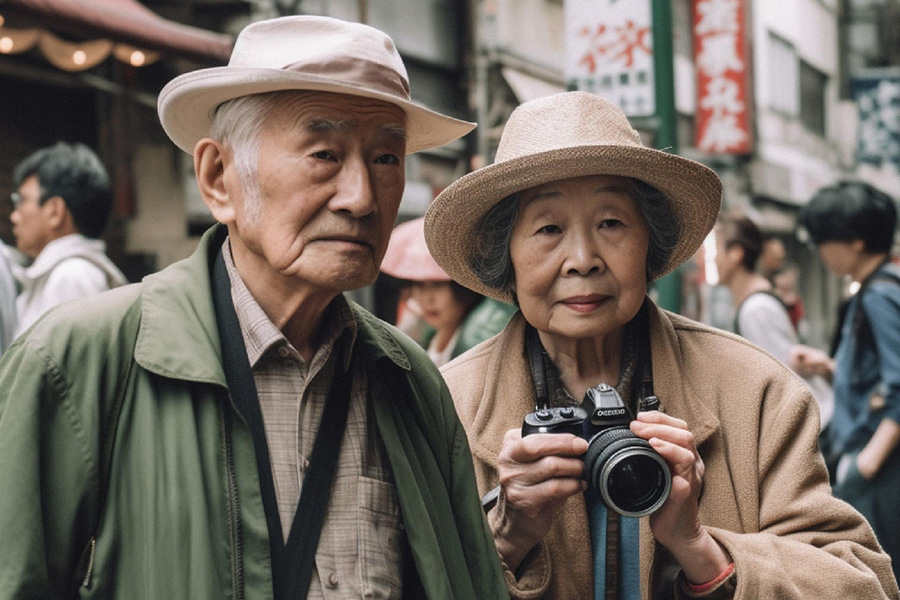
Examining age-related changes in gerotranscendence — associated with physical and psychological well-being experienced by some older adults – this study involving over 3,000 people found that average gerotranscendence increased over time.
Authors
Yukie Masui, Research Team for Human Care, Tokyo Metropolitan Institute for Geriatrics and Gerontology, Sakae-cho 35-2, Itabashi-Ku, Tokyo, Japan
Takeshi Nakagawa, Graduate School of Human Sciences, Osaka University, Osaka, Japan
Saori Yasumoto, Graduate School of Human Sciences, Osaka University, Osaka, Japan
Madoka Ogawa, Graduate School of Human Sciences, Osaka University, Osaka, Japan
Yoshiko Ishioka, Associate Professor, Jindal School of Liberal Arts and Humanities, O.P. Jindal Global University, Haryana, India.
Ayaka Kasuga, College of Comprehensive Psychology, Ritsumeikan University, Osaka, Japan.
Noriko Hori, Department of Frailty Research, Center for Gerontology and Social Science, National Center for Geriatrics and Gerontology Research Institute, Aichi, Japan.
Hiroki Inagaki, Research Team for Promoting Independence and Mental Health, Tokyo Metropolitan Institute for Geriatrics and Gerontology, Tokyo, Japan.
Yuko Yoshida, Research Team for Human Care, Tokyo Metropolitan Institute for Geriatrics and Gerontology, Sakae-cho35-2 Itabashi-Ku, Tokyo, Japan.
Midori Takayama, Faculty of Science and Technology, Keio University, Kanagawa, Japan.
Yasumichi Arai, Faculty of Nursing and Medical Care, Keio University, Kanagawa, Japan.
Kazunori Ikebe, Graduate School of Dentistry, Osaka University, Osaka, Japan.
Kei Kamide, Graduate School of Medicine, Osaka University, Osaka, Japan.
Tatsuro Ishizaki, Research Team for Human Care, Tokyo Metropolitan Institute for Geriatrics and Gerontology, Sakae-cho35-2 Itabashi-Ku, Tokyo, Japan.
Yasuyuki Gondo, Graduate School of Human Sciences, Osaka University, Osaka, Japan.
Summary
Gerotranscendence is associated with the physical and psychological well-being of older adults. However, findings regarding the changes in gerotranscendence based on age are inconsistent. Therefore older adults in Japan. A total of 3,011 older adults were included in this study. The total Japanese Gerotranscendence Scale Revised scores were measured in one to four surveys every 3–4 years.
A linear mixed-effects, this study aimed to examine age-related changes in gerotranscendence at four time points over a 9-year period in community-dwelling model analysis was used to test the following hypotheses: 1. gerotranscendence increases with age; 2. the magnitude of increase in gerotranscendence differs by gender and age group and these effects remain significant even after adjusting for control variables. Results from the mixed-effects model showed that controlling for the number of years of education, absence of cohabitants, self-rated health, instrumental activities of daily living, and psychological well-being, average gerotranscendence increased over time. At baseline, women and older age groups reported significantly higher levels of gerotranscendence.
The magnitude of the temporal change in gerotranscendence was shown to be age-related. In other words, the increase in gerotranscendence plateaued at higher old ages. Gerotranscendence is a valuable psychological function that increase during old age—associated with a decline in physical and cognitive functioning.
Published in: Journal of Adult Development
To read full article, please click here.

